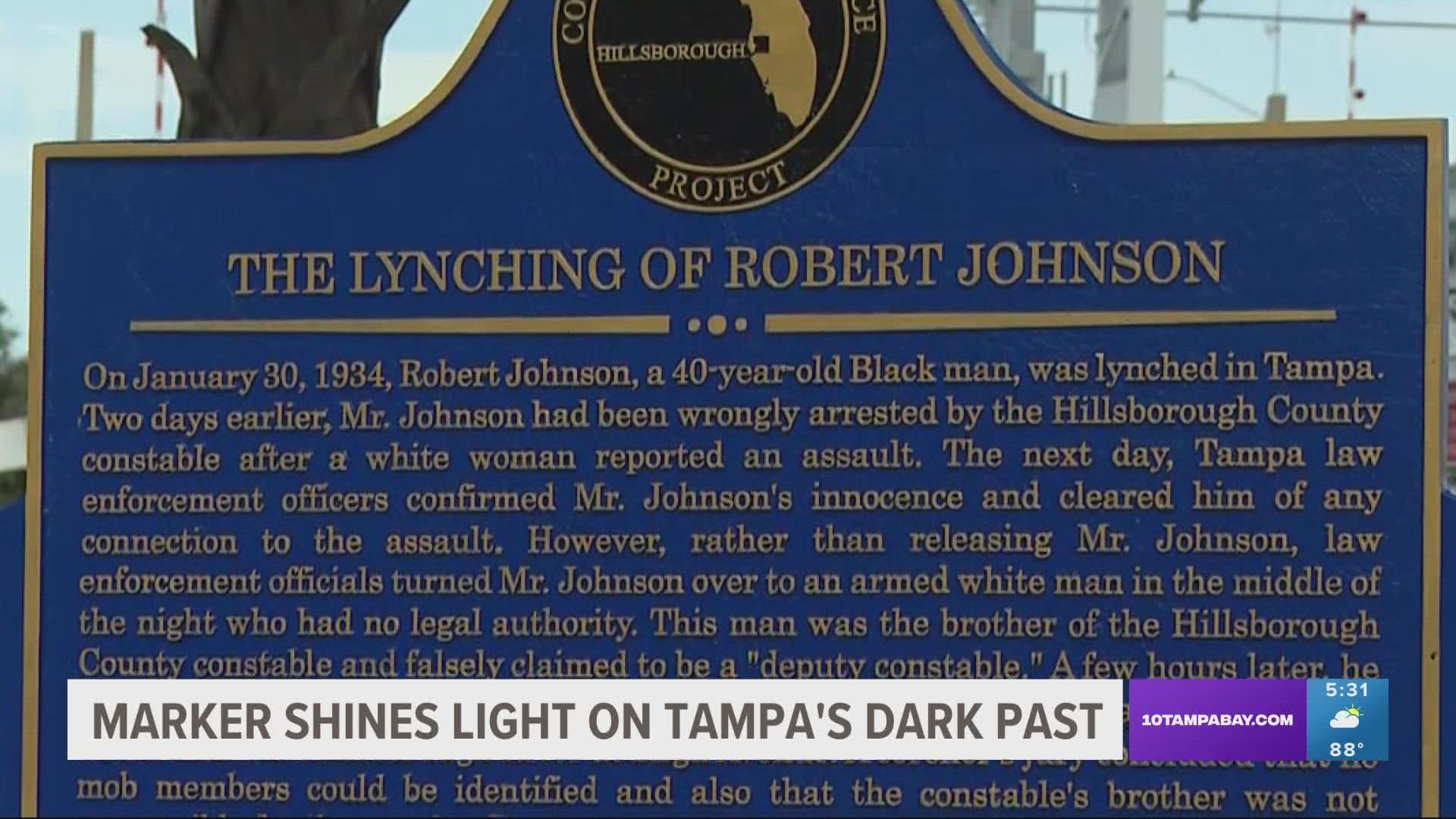TAMPA, Fla. — A marker created to remember a man lynched during the Jim Crow era was unveiled Monday morning in downtown Tampa.
The Tampa-Hillsborough Community Remembrance Project hosted a ceremony along the Riverwalk at Doyle Carlton Drive and W. Laurel Street explaining the history behind the marker.
It highlights Robert Johnson, a 40-year-old Black man wrongfully arrested and killed in 1934 in Hillsborough County. The memorial also includes the names of the four other lynching victims in Hillsborough County.
"We're here today to commemorate a tragedy that which is a Tampa tragedy but part of a larger Florida and American tragedy," Tampa Councilman Luis Viera said. "The fact is that from the end of reconstruction to the 1930s, it was Florida that had the highest per capita rate of lynchings throughout the entire United States."
So why was a racial lynching memorial erected? Viera provided three points:
- Painful and acute history lingers for too many Americans like an untreated wound.
- This type of history is the kind that "good and thoughtful" Americans champion because it leads to dialogue.
- Names that are often forgotten are now remembered.
The marker, established with the help of the Equal Justice Initiative, is the first of its kind in Tampa.
"The Equal Justice Initiative Community Remembrance Project partners with community coalitions to memorialize documented victims of racial violence throughout history and foster meaningful dialogue about race and justice today," city leaders explained in a news release.
Thousands of people were lynched in the U.S. between the Civil War and World War II. Black Americans were violently and publicly tortured because of the color of their skin. At one point in time in Florida, there were more black Americans lynched per capita than in any other state.
Gloria Jean Royster, who attended the unavailing ceremony, said this history is significant and matters.
“We have to lead with this spirit that color doesn’t matter," she said.
Tampa Mayor Jane Castor says the unveiling of the marker was a "very meaningful step in the history of Tampa and the acknowledgment of [the city's] history as a community, both positive and negative."
"If we as people and as a nation don't recognize and remember the brutal actions and injustices that have taken place in the past, then we are doomed to repeat them," Castor said. "As a community, we are better than that and we have to ensure that together we move forward here in the city of Tampa."
Watch the full ceremony down below.

